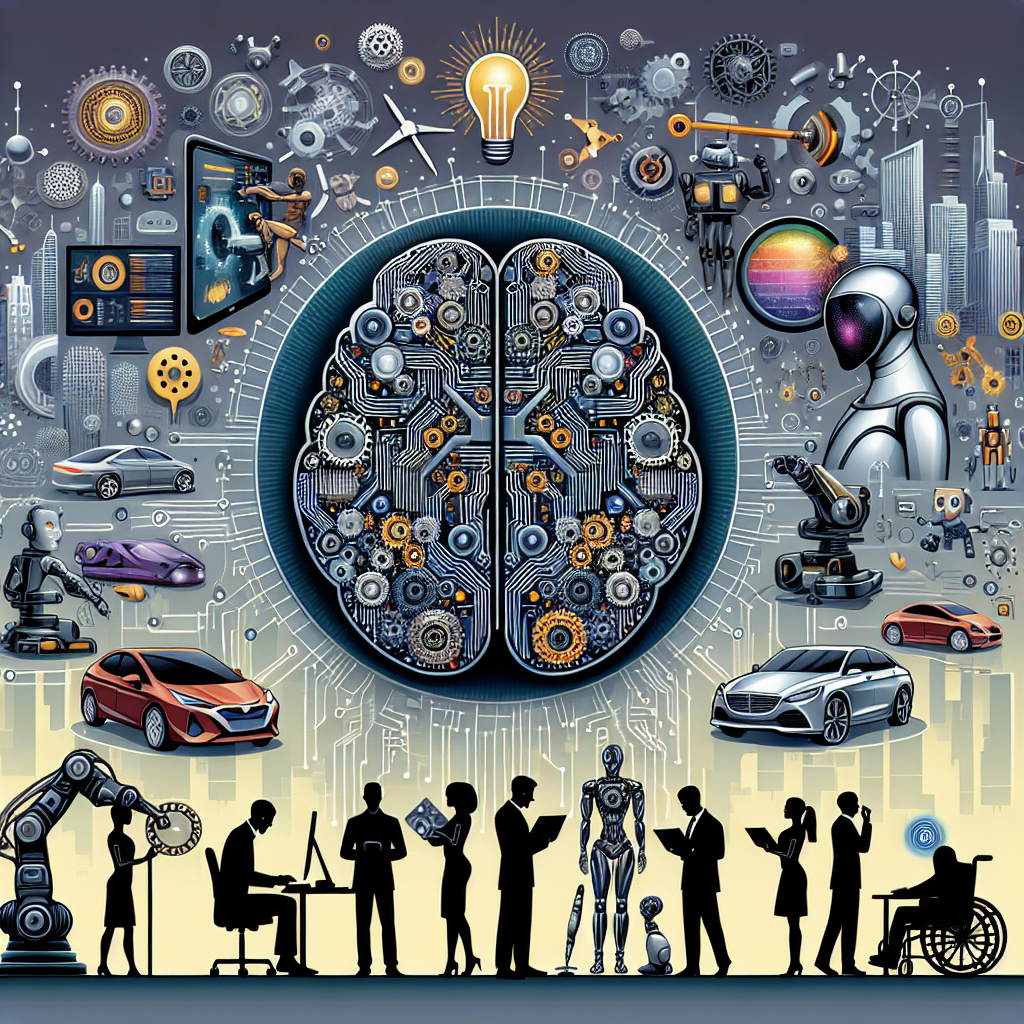The Rise of Artificial General Intelligence: What it Means for Humanity
Artificial Intelligence (AI) has been a topic of discussion for decades, with the concept of machines being able to perform tasks that typically require human intelligence becoming a reality in recent years. However, the development of Artificial General Intelligence (AGI) has the potential to revolutionize the way we live, work, and interact with technology in ways that were previously unimaginable. In this article, we will explore the rise of AGI, what it means for humanity, and address some frequently asked questions about this emerging technology.
What is Artificial General Intelligence?
Artificial General Intelligence refers to a type of AI that is able to understand, learn, and apply knowledge in a wide variety of domains, much like a human being. Unlike Narrow AI, which is designed to perform a specific task or set of tasks, AGI is capable of adapting to new situations, solving complex problems, and reasoning like a human. This level of intelligence has been the subject of much speculation and debate among researchers and experts in the field of AI.
The development of AGI has the potential to revolutionize a wide range of industries, from healthcare and finance to transportation and manufacturing. With the ability to think, learn, and make decisions like a human, AGI could lead to significant advancements in efficiency, productivity, and innovation across various sectors.
What Does the Rise of AGI Mean for Humanity?
The rise of Artificial General Intelligence has the potential to bring about both significant benefits and challenges for humanity. On the one hand, AGI has the potential to revolutionize the way we live and work, leading to greater efficiency, productivity, and innovation across various industries. From autonomous vehicles and healthcare robots to personalized shopping experiences and virtual assistants, the possibilities for AGI are endless.
However, the rise of AGI also raises concerns about the impact on the job market, privacy, and security. As machines become increasingly capable of performing tasks that were previously reserved for humans, there is a growing fear that automation and AI could lead to widespread job displacement and economic inequality. Additionally, the potential for AGI to be used for malicious purposes, such as surveillance or warfare, raises important ethical and regulatory questions that must be addressed.
Overall, the rise of AGI has the potential to transform the way we live, work, and interact with technology in ways that were previously unimaginable. As this technology continues to develop, it is crucial that we consider the implications for humanity and work towards creating a future that benefits all members of society.
FAQs
Q: Will AGI replace humans in the workforce?
A: While the rise of AGI has the potential to automate many tasks currently performed by humans, it is unlikely that AGI will completely replace humans in the workforce. Instead, AGI is more likely to augment human capabilities, leading to greater efficiency and productivity in various industries.
Q: How will AGI impact privacy and security?
A: The development of AGI raises important questions about privacy and security, as machines become increasingly capable of collecting and analyzing vast amounts of data. It is crucial that robust regulations and ethical guidelines are put in place to protect individuals’ privacy and prevent the misuse of AGI for malicious purposes.
Q: What are some of the ethical considerations surrounding AGI?
A: The rise of AGI raises important ethical questions about the impact on society, job displacement, and the potential for AGI to be used for harmful purposes. It is essential that researchers, policymakers, and industry leaders work together to address these ethical considerations and ensure that AGI is developed and deployed in a responsible and ethical manner.
In conclusion, the rise of Artificial General Intelligence has the potential to revolutionize the way we live, work, and interact with technology in ways that were previously unimaginable. While the development of AGI brings about significant benefits and challenges for humanity, it is crucial that we consider the implications of this technology and work towards creating a future that benefits all members of society. By addressing important ethical, regulatory, and societal considerations, we can ensure that AGI is developed and deployed in a responsible and ethical manner that benefits humanity as a whole.

